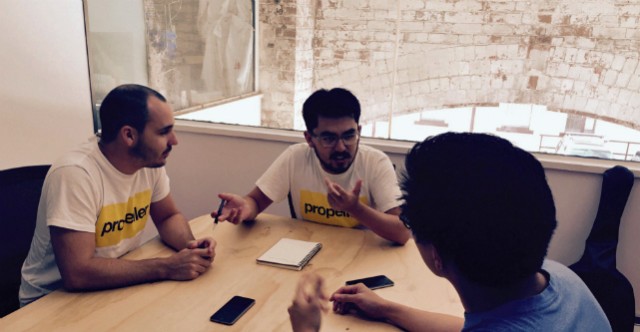The five things this angel investor looks for in a startup – StartupSmart

By Rayn Ong
Potential investors without any startup exposure need to filter out the noise to find the best deals.
Here are the five things I always look for in a good Aussie startup.
1. A high-quality team with complementary skills
People make things happen; great people make magic happen.
When evaluating a team, think about what Niki Scevak always says: “Can this team get shit done? Why do they give a shit?”
It’s harder to do it solo – statistically speaking, founding teams of two are better than one and four is too much.
Without a tech person, nothing will be built. Without a storyteller, no one will get to hear about the product. Without good communication, no learning or discovery will happen.
I like founders who are super inquisitive and curious – that’s how they are able to listen to their customers and build a 10 times better product.
I like founders who are super obsessed with their product and care about customer success – that’s how they are able to build a 10 times better experience and retention.
I like founders who are super resourceful, creative and hungry to win – that’s how they are able to connect the dots and build 10 times better unit economics.
I like founders with a genuine connection to the problem they are trying to solve – that’s how they are able to persevere when things get rough.
I like founders who are honest and accountable – that’s how they are able to build a long-term relationship with their investors who will back them again and again.
2. A product solving a really painful problem
A good product solves a really painful problem.
If the problem is not painful enough, no one will pay for it. The decision makers probably don’t have time to even think about it, let alone searching for a solution.
Some unsolved problems require deep vertical knowledge to identify. When the founders have worked in a particular sector for many years and then leave their high-paying jobs to build a product that solves their own painful problem, things become very interesting.
There are founders that try to think of a bullshit problem to solve, only because they want to “do a startup”, raise some money and get some press coverage. I would encourage them to join a well-funded startup solving a real problem instead.
3. A big and growing market
It needs to be an awesome product that solves a really painful problem for many people.
Startups often pitch with a $100 trillion market size and claim that they only need to capture 1% of that market to be really successful. Don’t fall into this trap; ask them how they would get their first 100 paying customers.
If the product is disrupting an existing market, is it 10 times better, cheaper or faster than the current solutions. Otherwise, why would a customer switch to the new product?
If the startup is creating a completely new market, do they have enough money to educate the users?
4. Happy paying customers
Product-market fit is the magical moment when the founders figure out how to get the right product into the hands of their target customers. Happy paying customers are more important than anything else in the early days because they will bring more customers via word of mouth.
Angel investors can’t really judge whether the product is good or bad when they are not the target customers. It would be best to interview the happy customers and find out why they love the product so much and look at the market sizing to see how many more customers will also want it.
This is when I like to invest because product and market risk have been minimised and I am mainly exposed to the execution risk.
5. A plan that makes sense
I like a team with a plan because they can focus and prioritise.
A plan is the best execution path based on the information the team has today. The team can adjust the plan as they discover new information, because assumptions are worthless until they have been validated.
The main purpose of the plan is to evaluate if the team can build the proposed product and get it into the hand of their customers before they run out of money. Can they show enough progress to raise the next round of funding from later stage investors?
A plan is also important for keeping the team accountable. Are they executing well? What is the new market insight that made them adjust their plan?
For the startup founders, if your startup ticks all the five boxes above and you still cannot raise money due to “lack of early stage funding”, I would suggest you look around and hustle harder.
With innovation as our national agenda and more initiatives/incentives coming our way, I believe it is time for our very capable Aussie entrepreneurs to really shine.
This piece was originally posted on Medium.
Rayn Ong is an angel investor and a member of Sydney Angels, working closely with the Startmate and muru-D accelerator. You can follow him on Twitter.
Follow StartupSmart on Facebook, Twitter, LinkedIn and SoundCloud.

